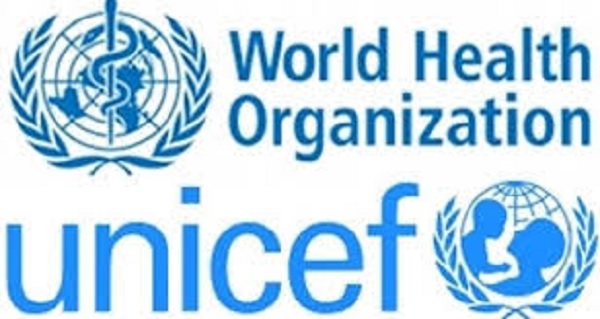The World Health Organization(WHO) has said physical activities can help to tackle the burden of Non-Communicable Diseases if harnessed routinely.
It has been reported that Noncommunicable Diseases (NCDs) kill 41 million people each year, equivalent to 71% of all deaths globally.
Each year, more than 15 million people die from an NCD between the ages of 30 and 69 years; 85% of these “premature” deaths occur in low- and middle-income countries.
Seventy-seven percent of all NCD deaths are in low- and middle-income countries.
Kazadi gave this hint during the third edition of the of walk the talk: The Health for All Challenge” organized by the World Health Organization Nigeria office in collaboration with the Federal Ministry of Health, partners and the public.
The WHO Country Representative, Dr Walter Kazadi, pointed out that, globally, the burden of Non-Communicable Diseases (NCDs) has been growing due to a lack of physical activities.
He noted that today, we are here to create awareness for people to engage in physical activities. To bring everybody to know about NCDs and it’s effect.
“Globally, the burden of Non-Communicable Diseases such as diabetes, hypertension, cancer and chronic diseases are growing due to lack of physical activities.
“We do it once a year on the side to kick off World Health Assembly. Health Assembly that is starting tomorrow. We want to add our contribution to that global campaign for everyone to become active as part of our effort to beat NCDs.
“This is what we should be doing every day for at least half an hour if we are to beat NCD,” he said.
It is worthy of note that, Noncommunicable Diseases (NCDs), also known as chronic diseases, tend to be of long duration and are the result of a combination of genetic, physiological, environmental and behavioural factors.
The main types of NCD are cardiovascular diseases (such as heart attacks and stroke), cancers, chronic respiratory diseases (such as chronic obstructive pulmonary disease and asthma) and diabetes.
NCDs disproportionately affect people in low- and middle-income countries where more than three-quarters of global NCD deaths 31.4 million occur.
Detection, screening and treatment of NCDs, as well as palliative care, are key components of the response to NCDs.
YOU SHOULD NOT MISS THESE HEADLINES FROM NIGERIAN TRIBUNE
We Have Not Had Water Supply In Months ― Abeokuta Residents
In spite of the huge investment in the water sector by the government and international organisations, water scarcity has grown to become a perennial nightmare for residents of Abeokuta, the Ogun State capital. This report x-rays the lives and experiences of residents in getting clean, potable and affordable water amidst the surge of COVID-19 cases in the state…
Selfies, video calls and Chinese documentaries: The things you’ll meet onboard Lagos-Ibadan train
The Lagos-Ibadan railway was inaugurated recently for a full paid operation by the Nigerian Railway Corporation after about a year of free test-run. Our reporter joined the train to and fro Lagos from Ibadan and tells his experience in this report…
WATCH TOP VIDEOS FROM NIGERIAN TRIBUNE TV
- Let’s Talk About SELF-AWARENESS
- Is Your Confidence Mistaken for Pride? Let’s talk about it
- Is Etiquette About Perfection…Or Just Not Being Rude?
- Top Psychologist Reveal 3 Signs You’re Struggling With Imposter Syndrome
- Do You Pick Up Work-Related Calls at Midnight or Never? Let’s Talk About Boundaries







